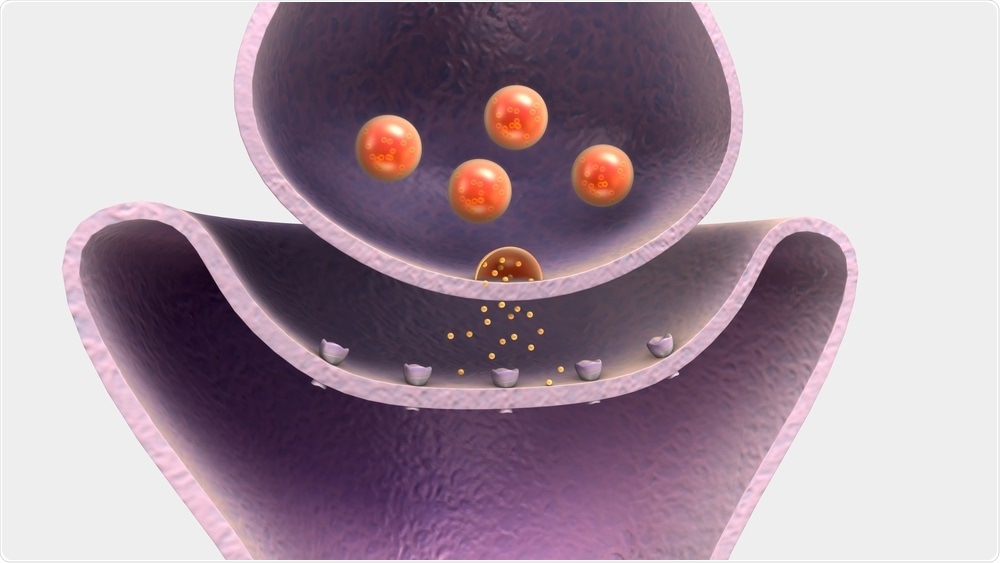An interview with Richard Delle Bovi, conducted at SfN 2018 by Alina Shrourou, BSc.
What are neurotransmitters? Which ones are important and why?
Neurotransmitters are chemical messages that the body puts out from neurons. These usually transmit signals to other neurons, but they can be to other cells in the body, such as muscle cells or gland cells. The important neurotransmitters are involved with various social and behavioural functions and can be remembered by the acronym “DOSE”: Dopamine, Oxytocin, Serotonin, and Endorphins.
 © sciencepics/Shutterstock.com
© sciencepics/Shutterstock.com
What information can neurotransmitters tell us about biological samples?
The monitoring, manipulation, and control of neurotransmitters helps us understand their role in neurological function. Abnormal neurotransmitter levels are involved in some disease states, such as dopamine in Parkinson's disease, and fluctuations of serotonin can affect your mood, appetite, sleep, and other behavioural disorders. Understanding the changes in neurotransmitters is important because of the multifaceted role they play in our neuropathy.
What challenges do researchers face when trying to understand neurotransmitters?
Typically, researchers use Western blots, which are very sensitive but are not easy to replicate and only semi-quantitative. Enzo primarily uses enzyme-linked immunosorbent assays, or ELISAs, which are very consistent, fully quantitative, and help us understand the actual changes that are going on in cells.
How do the ELISA kits from Enzo Life Sciences provide confidence in assay results?
We have decades of experience of manufacturing ELISA kits and we've done many studies looking at how consistent our ELISA kits are between lots. Over 10 years’ time, we've tested all the ELISA kits that we produce and show they provide consistent results. Neuro-research usually has long projects spanning over years, so it’s good to be able to have a reliable test and not have to worry about the detection method being a limiting factor.
What are the research applications of the Enzo Life Sciences’ ELISA Kits?
Many people are usually looking for target validation studies or need to be able to detect small changes in neurotransmitter levels. We have other hormone assays, and almost anything you make an antibody to, you can make an ELISA for.
We have about 300 different ELISAs in our company that we sell for that purpose.
Enzo’s Cellular Analysis Solutions
Additionally, how can assay kits help with cell biology-based research?
One great thing about ELISAs is their ability to assay many samples quickly, also known as high-throughput analysis, so you can do samples in duplicate or triplicate to make sure your results are reproducible. You can also scan various amounts of different conditions very quickly, due to the fact that ELISAs are faster than other methods.
What is the importance of the “live cell” ability of Enzo Life Sciences’ CELLESTIAL® analysis kit?
Those are primarily for live cell analysis, although they will work on fixed and permeabilized cells as well. The main advantage of being able to study live cells is being able to manipulate them after the fact, so our dyes are non-toxic, and you don't have to do any transfection. Additionally, some of our users have videotaped their cells going through processes such as apoptosis, which provides some stunning visuals.
It's a mix-and-read, no wash, procedure where you can look at it with a fluorescent reader, microplate reader, or fluorescent microscope. Using the live cell analysis kits, you can see actual changes within the cell. For example, our PROTEOSTAT® Aggregation Assay is a quick and easy method for detecting protein aggregates with a fluorescent microscope.
What do you hope to learn from Neuroscience 2018?
We go to Neuroscience to speak with our users and see how we can better serve them. Enzo has been a leading provider of kits and assays for neuroscience research, and we continue to offer the best products on the market.
About Richard Delle Bovi
.jpg)
Richard Delle Bovi received his Ph.D. in Biochemistry and Structural Biology from Stony Brook University where he worked on elucidating the activation mechanism of receptor tyrosine kinases.
He has experience working with early stage biotechnology companies develop business plans and receive funding. In his role as a product manager at Enzo Life Sciences, Richard is responsible for the development and maintenance of new cutting-edge tools for academic and industry researchers.